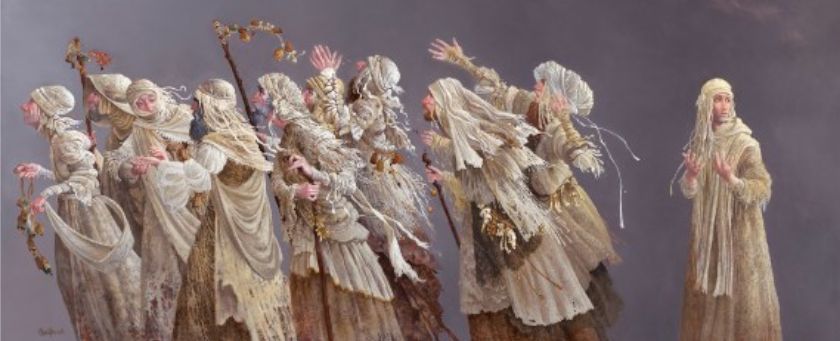The Healing Power of God Comes through the True High Priest
Twenty-eighth Sunday in Ordinary Time, Year C

Readings:
2 Kgs. 5:14-17; Ps. 98; 2 Tm. 2:8-13; Lk. 17:11-19
(Audio recorded live, 8 October 2022)
“Has none but this foreigner returned to give thanks to God?” Jesus asks this question to show that God favors both the chosen people of Israel as well as foreigners. Jews and Samaritans were bitter enemies, yet one of the lepers who was healed was a Samaritan. But, what was it that healed this man? Jesus also makes this clear when he says, “Stand up and go; your faith has saved you.” Once again, we see the value and the importance of faith in Jesus as the means of salvation, even for foreigners, and in a wider sense, for Gentiles.
That the salvation of God was made available to people foreign to Israel is no secret. We hear a very similar story in the Second Book of Kings as Naaman, a Syrian king, is healed by plunging into the waters of the Jordan in the land of Israel. At first, Naaman wants nothing to do with consulting a prophet of God from Israel, but his people urge him to do so. When Elisha tells Naaman to plunge seven times into the waters of the Jordan, he really felt like a fool. But, again, his people urged him to do it, and upon doing so, he came up out of the water healed.
Naaman’s plunging into the waters of the Jordan is a type or prefigurement of baptism. And the miracle of his being cleansed of his leprosy brought about his conversion. He says, “I will no longer offer holocaust or sacrifice to any other god except to the LORD.” This is the power of encountering God and the power of having even a little faith, even if having a little faith means family and friends have to convince you to do what is good for your body and soul.
St. Paul speaks of being a prisoner for Christ, and how his witness to the truth of the Gospel landed him in chains. But, the Word of God is not chained, nor can it be restrained. For the will of God must always be carried out. As we heard last week, “For the vision is a witness for the appointed time, a testimony to the end; it will not disappoint” (Hab. 2:3a). Neither will Jesus Christ disappoint us, as St. Paul says, “If we have died with him we shall also live with him; if we persevere we shall also reign with him.” We are called to reign with Christ in heaven, if only we persevere in faith to the end.
One last word about our Gospel today. Jesus tells the lepers to go and show themselves to the priests. In order to be welcomed back into the community, someone who was healed of their affliction would have to be evaluated by the priest and offer a small sacrifice of thanksgiving to God. The Jewish lepers all go off to their respective priests, but the Samaritan, the foreigner, goes to Jesus. The subtext in this passage is that Jesus is the true priest, and only the foreigner recognizes it. That is why he returns giving thanks to God at the feet of Jesus. And just as having leprosy was a death sentence, having been healed of his affliction, Jesus tells the man to stand up and go. Standing is a symbol of resurrection; it is also an acknowledgment of the man’s relationship to Jesus. To have standing in court is about having a legal right to sue. In the case of the lepers, the priests had the legal right to banish them from the community. In the case of the Samaritan, he received standing from Jesus to walk free.
Where do we stand? Are we like the nine who fail to recognize the gift of God in front of them, or are we like the one who sees Jesus for who he truly is? Jesus is the High Priest, the Son of the Most High God. And so, as we turn to the celebration of the Eucharist, the word that itself means “thanksgiving,” may we approach the altar of sacrifice like the Samaritan, giving thanks to Almighty God. And may the communion we receive strengthen our faith so that we may persevere to the end.





Share this post
Twitter
Facebook
Pinterest
Email